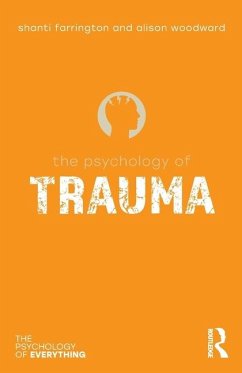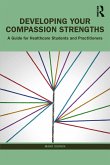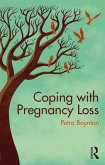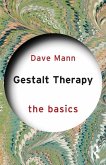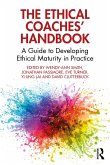What emotional, physical, and psychological effects might there be on those who have experienced traumatic events? How does neurodiversity, culture, and individual experience affect trauma responses? How can you support someone experiencing symptoms of trauma?
The Psychology of Trauma integrates the knowledge and research from clinical practice and neuroscience to offer a scientific approach to understanding and managing symptoms of trauma. It debunks the myths and prejudices around trauma-informed therapy, shifting people's view from 'What's wrong with you?' to 'What happened to you?', and provides an overview of the different concepts and counselling approaches that are most suitable to support working with trauma. It also explores how neurodiversity, cultural differences, or social contexts affect the way we respond to any trauma.
Using a trauma-informed framework, The Psychology of Trauma explores how clinical understanding can help family and community to support the journey of recovery It provides an overview of key aspects around trauma-informed practices and principles whilst shining a light on new and emerging treatments for trauma.
The Psychology of Trauma integrates the knowledge and research from clinical practice and neuroscience to offer a scientific approach to understanding and managing symptoms of trauma. It debunks the myths and prejudices around trauma-informed therapy, shifting people's view from 'What's wrong with you?' to 'What happened to you?', and provides an overview of the different concepts and counselling approaches that are most suitable to support working with trauma. It also explores how neurodiversity, cultural differences, or social contexts affect the way we respond to any trauma.
Using a trauma-informed framework, The Psychology of Trauma explores how clinical understanding can help family and community to support the journey of recovery It provides an overview of key aspects around trauma-informed practices and principles whilst shining a light on new and emerging treatments for trauma.
"In this slim volume, UK psychotherapists and academicians Farrington and Woodward provide a succinct description of trauma based on clinical studies, neuroscience, and social/cultural data. Especially useful is their three-phase structure of trauma-informed psychotherapy, culminating in a "celebration of post-traumatic growth." They explain vicarious trauma and complex post-traumatic stress disorder (PTSD), debunk such adverse advice as "everyone has trauma" and "just get over it," and provide a list of common symptoms along with appropriate exercises for addressing them. The book is replete with case studies, charts, and diagrams, including one that depicts the role of dissociation in PTSD. The chapter on attachment theory leads into a delineation of helpful suggestions for the family and wider community. Unique are the discussions of neurodiversity, sexual diversity, and ethnic diversity. This reviewer's personal favorite was the chapter on the brain's evolution and how it responds to trauma through fright, fight, freeze, or flop. The only quibbles are the authors' omission of PTSD nightmare therapy and their use of the term "traumatic event" instead of "traumatic experience"; an event may be traumatizing for one person but not for another."
--S. Krippner, California Institute of Integral Studies. CHOICE Review February 2025
--S. Krippner, California Institute of Integral Studies. CHOICE Review February 2025

